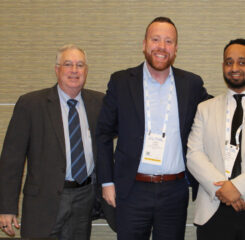Extended Absences from HUD Housing during COVID-19
With the pandemic stretching beyond one year, HUD Multifamily Housing communities are reviewing community policies intended to be “short-term,” including extended absence exceptions to house rules.
The Issue:
According to data from HUD’s Office of Policy Development and Research, HUD-assisted residents are at particularly high risk to COVID-19 due to intersecting and compounding characteristics, like age, race, income, and living conditions. As a result, older adults in HUD-subsidized senior housing may have chosen to be temporarily absent from their units during the pandemic out of concerns for their health and wellbeing.
Residents may have various reasons for extended absences: Older adult residents may have chosen to avoid the congregate living setting because of higher transmission risks, or they may be staying with family to avoid the loneliness and isolation that accompany a locked down senior housing community setting. Or, the resident or a family member may have experienced health impacts from the pandemic that resulted in the need for temporarily higher levels of care.
What HUD Has Said:
Extended Absence Timeframes and Rules
Per HUD’s Occupancy Handbook, the 4350.3, REV 1:
“Owners may establish rules specifying when tenants give up their right to occupancy because of their extended absence or abandonment…The decision to establish rules regarding extended absence or abandonment of a unit as part of a property’s house rules rests solely with the owner”(6-9 4350.3).
In other words, owners can set and implement their own policies around extended absences, and HUD’s Office of Multifamily Housing Programs does not have a timeframe for extended absence periods. The handbook also states:
“Owners may establish a house rule defining extended absence as the tenant being absent from the unit for longer than 60 continuous days, or for longer than 180 continuous days for medical reasons. Owners may allow exceptions for extenuating circumstances.” (6-9 4350.3).
The current pandemic may have led to more frequent and longer absences than usual at the property. HUD’s handbook does not indicate an “upper limit” to the extended absence, so long as the absence is supported by the property’s house rules (either through a medical exception or an exception for an extenuating circumstance).
While each property’s policy can be different, the policies must all comply with state and local laws. Property policies should also be applied consistently to all residents at the property (i.e., all residents should be given the same consideration for an extenuating circumstance house rules exception, etc.).
Distinguishing Extended Absences and Unit Abandonment
Residents who are absent from their unit must be responsive to the property staff and still comply with other portions of their lease agreements (including paying rent). Abandonment of a unit, on the other hand, is distinguished from absence by the resident’s failure to pay rent or to respond to notices from the owner.
HUD’s Multifamily Housing COVID-19 Q&A document states: “The term “abandonment” requires a fact-specific determination to be made as to the reasons behind the family not being in the unit. A family could have decided to quarantine with other family members, could be hospitalized, or could be prevented from returning to the unit due to an emergency declaration by the state. The owner or agent must take additional steps to ensure that the unit is in fact “abandoned” by the family.”
Other Considerations for Housing Providers:
LeadingAge recommends that housing providers review their community policies, document instances of extenuating circumstances, and make updates to house rules where necessary to support older adults during the pandemic. Because older adults are at such high risk of COVID-19, and because HUD’s handbook indicates house rules exceptions for both medical and extenuating circumstances, providers can take a broad view of resident situations warranting a rules exception during the pandemic.
Providers may get questions from other residents about an extended absence. While waitlist pressure remains a reality and many older adults face affordable housing shortages across the country, LeadingAge urges providers to proceed with caution when adjusting house rules that may result in an older adult having to choose between living somewhere they view as “unsafe” during the pandemic and losing their subsidized housing.

Most Recommended
October 15, 2025
 Shutdown Week Three: Impact of Ongoing Closure on Affordable Housing
Shutdown Week Three: Impact of Ongoing Closure on Affordable Housing
December 10, 2025
Fiscal Year (FY) Funding 2026
October 07, 2025
Immigrant Workforce Matching Program Brings Workforce Relief
Recently Added
December 17, 2025
 Colleagues on the Move, December 17, 2025
Colleagues on the Move, December 17, 2025
December 16, 2025



